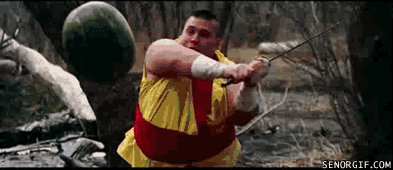Before I draft my reply, I just wanted to point out the conviction in this statement, if anyone happened to miss it. When a man like this speaks; he who lives his entire life through a matrix of 'goodness', you all need to bear witness, heathens. The good man is irrepressible.
There's a few things to disentangle in this question, though, like many have pointed out. I don't think this question should rely upon what is sexually desirable to women to inform it, or what makes good 'people' in general. Rather, I think there is definitely a 'masculine' aspect to the moral character that we're trying to parse here, and to figure out the essence of that we might have to get a bit abstract.
We could imagine that it embodies the 'active' as opposed to the 'passive' principle when considering moral action. There are active or proactive ways to be 'good'/'moral', just as there are passive or reactive ways, and this is a good start for conceiving of this.
For me, the natural conclusion to this kind of abstract reasoning about the 'masculine good' (I'm skipping a few steps here for brevity) is something like that spoken of in 'archetypal' terms: the 'father energy' or the 'divine masculine', and therefore the question becomes 'what does the archetypal "masculine good" embody'?
I think Wyote touched on this earlier in the thread when he mentioned how being a good woman is easy; a good man impossible, and I think a part of why this is the case is because the ultimate embodiment of the 'masculine good' is the archetypal Sky Father or monotheistic God. This figure is the natural conclusion and ultimate expression of what 'masculine good energy' is supposed to be, and when I say 'supposed to be', I mean it in terms of what human beings crave as a necessary component of their individual wellbeing and social function.
Looking at it this way, then, we can see that Sky Fathers are always sources of ultimate
authority, which conceptually might be thought of as a combination of
power and
law. They envelop their realms in a protective aura of order and justice, where the people living within this aura feel
safe because
everything makes sense. Fairness and justice prevail because of the masculine power which orders the realm.
The 'masculine good', then, seems more aligned with 'justice' than it does with 'mercy' (which would be the 'feminine good'), and of course justice requires
power (which is 'active', 'willful', &c.) whereas mercy does not (though this is arguable).
If we wanted to ask 'what makes a good
man', then, we might say that it is someone who embodies the energy of 'God' (as a Sky Father) - an absolute expression of
law and
power, used to the end of ordering a personal kingdom in which people feel safe and fairly treated. The good
man has a keen sense of his
law, his
rules, and is able to express these outwards into his world as a personal kingdom.
Being a 'good man' is so impossible because in this view it literally asks men to be something close to supreme gods - limitlessly powerful, infinitely orderly; ultimate embodiments of
right authority. When a man carries such 'right authority', his protective aura is palpable, and people are able to feel it - I'm sure many of you have experienced this when in your own homes because of your own fathers, or in the homes of friends with good fathers when you were children: there's usually a kind man (alongside a kind woman) at the centre of these spaces that makes you feel simultaneously welcome and protected (or conversely, you may have been in households where this energy
isn't there, and felt the lack). I think men lose the ability to detect this aura as we mature, because we become
our own sources of it, but I'm convinced that women and children are able to feel it when it's there.
Cultivating this kind of 'right authority' I think begins, as
@Pin mentioned, by first conceiving of yourself
as a man; a man with
responsibility to others. It requires a 'stepping up' to action, to authority, and to presence in the world. It's worth mentioning, though, that even if you achieve this state, it's quite easy to lose.




